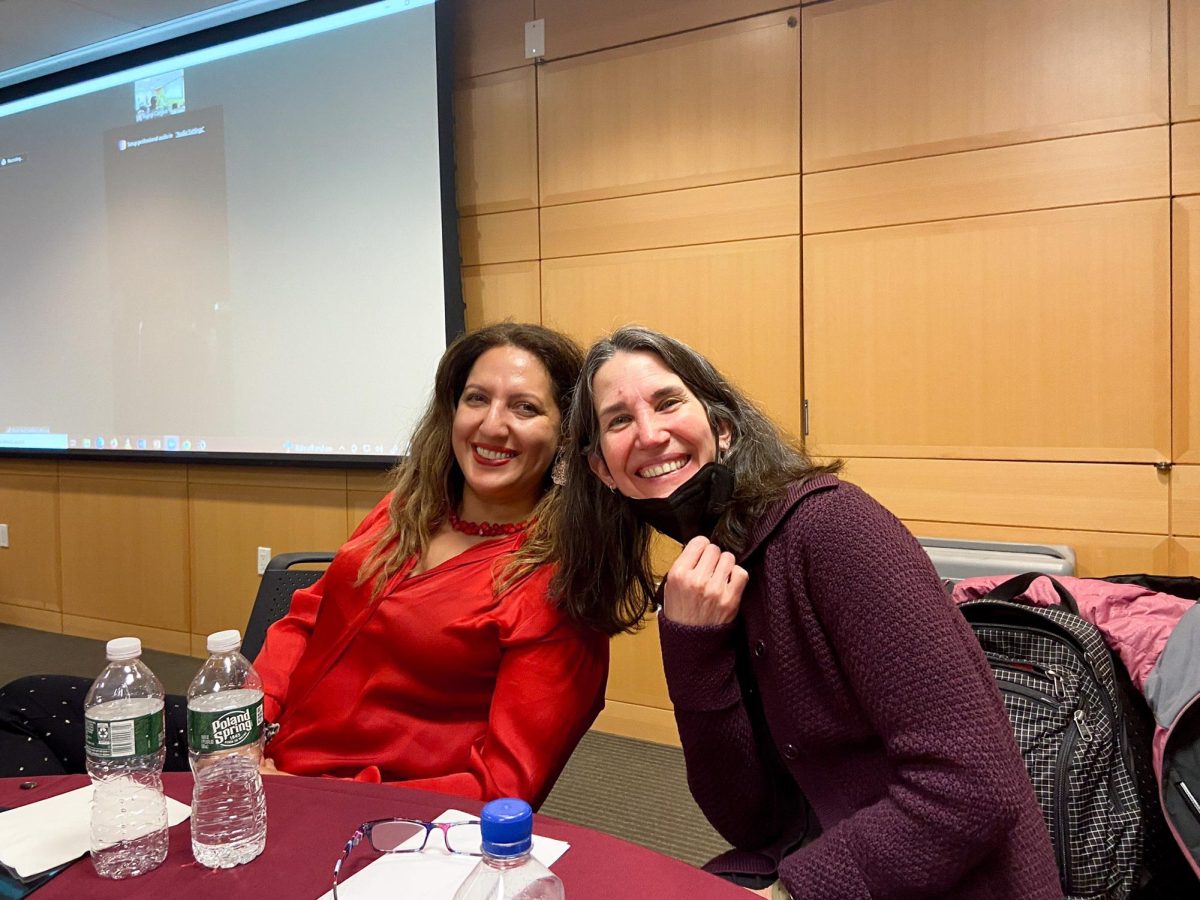Fordham University will offer a minor in Islamic studies beginning in the fall 2023 semester for the first time after student demands to explore Islamic civilization more comprehensively were brought to instructors. Faculty and students spearheaded efforts in fall 2022 to develop the minor and the Islamic studies minor was approved by the arts and sciences councils of both Fordham College at Rose Hill (FCRH) and Fordham College at Lincoln Center (FCLC) on May 3, and offers students the opportunity to learn from varying perspectives of Islamic thinking and belief.
According to the 2023-24 academic bulletin, the newly created Islamic studies minor helps students gain exposure to various Islamic discourses and challenges them to view the world through non-Western European constructs.
“Simply put, a minor in Islamic studies promotes other ways of knowing and being in the world,” the bulletin said.
Sarah Eltantawi, associate professor in the theology department and one of the leading proponents of the minor’s creation, noted that the minor also offers specialized courses that allow students to delve into Islamic theology and civilization in all its complexity. She added that students will also be able to choose courses from various categories such as theology, history and philosophy; or arts, culture and politics.
According to Eltantawi, the collaborative process of creating and refining the curriculum for the Islamic studies minor involved extensive workshops and consultations with faculty members from various disciplines.
“The idea is that a student that completes an Islamic studies minor will emerge with a solid understanding of the complexity of Islamic civilization; they will have dipped their toe in, for example, a class on the Quran, a class on Islamic art, and a class on Islam in Medieval Europe as a foundation,” she said.
During the minor’s development, Eltantawi explained that student interest was a catalyst. She noted that her and Kathryn Kueny, professor of theology and director of the Middle East and religious studies programs, were “periodically approached” by students seeking a more organized structure for studying Islamic civilizations at Fordham.
“We realized that we already had a wealth of resources at the university and it was a matter of getting organized,” she said.
“I’m looking forward to the Islamic history being taught where different communities can relate,” Tanzema Qureshi, FCLC ’24
To create the minor, Eltantawi and other members of a working group for the minor contacted faculty across multiple departments they believed would support the interdisciplinary effort, drafted a proposal, shared the preliminary proposal with stakeholders and then asked them for feedback and edits.
According to Eltantawi, the collaborative process of creating and refining the curriculum for the Islamic studies minor involved extensive workshops and consultations with faculty members from various disciplines. This interdisciplinary approach aims to ensure that students receive a holistic education, and are able to explore the impact of Islam on history, literature, art, politics and social sciences within the minor.
Tanzema Qureshi, FCLC ’24 and president of the United Student Government at Lincoln Center (USGLC), expressed her enthusiasm for the minor’s inclusion in the 2023-24 academic bulletin. During her candidacy, Qureshi spoke on the significance of students of color and diverse backgrounds feeling ignored or underrepresented.
Qureshi added that she is glad people from different countries and communities on campus that are interested in learning about Islam are now given a place to apply this interest by having the option to pursue the minor.
“I’m looking forward to the Islamic history being taught where different communities can relate, as well as the tenets of Islam: faith, charity (zakat), prayer, kindness, and much more,” she said.
Qureshi added that the minor’s creation will allow students who are interested in Islamic studies to feel heard. She is hopeful that the long-term significance of the minor is that it empowers students at Fordham to pursue careers in relation to Islamic studies with “full support and full force” from the program and its prospective students. She also noted that due to pre-existing misconceptions about Islam, she hopes that the minor will help eliminate harmful perceptions of Islam and promote understanding and respect across cultures.
“Islam as a religion and Islamic civilization are perhaps the most misunderstood and opaque in the United States,”Sarah Eltantawi, associate professor in the theology department
In regard to student engagement and intrigue in the Islamic studies minor, Eltantawi shared that former students of hers have expressed much delight in hearing the news.
“It’s actually very heart warming for me to see how excited they are — I have literally witnessed jumping up and down and squeals of delight, which, I must say, as a professor, one does not see every day in relation to academic courses of study,” she said.
Benedict Reilly, FCRH ’23 and a former student of Eltantawi, was one of the students who had approached Eltantawi expressing excitement about the minor. He noted that he believes the minor will allow a new approach to studying Islam that doesn’t “relegate it to simply a phenomenon of the Middle East,” which is significant when considering issues like ongoing struggle for racial equity in Muslim communities.
“I am so excited to hear about this program and applaud all who have worked on it,” Reilly said. “I cannot wait to see what the future Islamic studies graduates will go on to do.”
The required coursework for the minor includes classes on Islamic sacred text, foundational history and culture.
Eltantawi believes the Islamic studies minor aligns with Fordham’s commitment to fostering a global perspective among its student body, by allowing students to understand and appreciate the complexities of Islamic civilization, thereby dispelling misconceptions and promoting intercultural understanding.
“Islam as a religion and Islamic civilization are perhaps the most misunderstood and opaque in the United States,” she said. “Encouraging students to start untying those knots are, at the very least, an excellent intellectual exercise and at best can expand their world views in profound ways.”
The Islamic studies minor will provide all students with an opportunity to expand their worldviews and perspectives, according to Eltantawi. She added that the program will also allow students to understand how interconnected the western and Islamic world is.
Additionally, Eltantawi highlighted the visible and growing population of Muslim students at Fordham. She believes that the minor will send a signal to students who practice Islam that they are welcome and supported by the university.
As for Qureshi, she noted that the minor will be a step forward in university efforts to expand a global learning experience for students.
“This broader goal of Fordham requires much transparency, effort, action, and a commitment to the global community of students at Fordham,” she said.
The required coursework for the minor includes classes on Islamic sacred text, foundational history and culture. Students interested in pursuing the Islamic studies minor can learn more on the academic bulletin


